Just over five years ago, Vineyard House — the Island’s only sober living and recovery facility — was actually three houses.
Spread throughout the Island, the three buildings provided men and women in the early stages of recovery with safe, alcohol- and drug-free spaces to renew their lives and re-enter the Island community. As beneficial as those separate houses were, however, Vineyard House had a larger aspiration: to provide a cohesive, centralized space for the Island’s recovery community.
Today, Vineyard House has been transformed into a single, attractively landscaped campus tucked away off Holmes Hole Road in Vineyard Haven that provides beds for 24 Vineyarders at a time and offers a message of hope to many more. The product of a successful capital campaign and careful planning, the nonprofit facility is unencumbered by debt. Since its opening five years ago, it has provided temporary housing for 132 people and hosted hundreds of 12-step and wellness meetings.
Two connected men’s houses, a house for women and an administration building with a community meeting room are located on the same parcel, separated not by roads, but by walking paths and a small courtyard with a gazebo.
“Having this campus changed everything,” said executive director Kate Desrosiers, reflecting on the growth of the organization — a process, like recovery, that remains ongoing.
Across the country, many sober homes began as converted houses that offered multiple bedrooms for people looking to get clean from drugs and alcohol. Because of the informality of the spaces, they were largely unregulated. Most catered only to men.
Like these, Vineyard House began in 1997 with the donation of a men’s house, in Vineyard Haven. But unlike most other sober homes, it began and remains not-for-profit. Operating independently with its own board and organizational structure, Vineyard House is not driven by the need to turn a profit and can focus instead on the needs of Islanders on the road to recovery.
Max Powers, who now works as an administrative assistant for Vineyard House, started as a resident in the original women’s house, purchased a year after the first men’s house was acquired. After spending time at a detox facility and going through rehab off-Island, she decided she wanted to be home — and on-Island — for the next stage of recovery.
Luckily, Vineyard House was there.
“It was incredibly difficult to go off-Island because I was separated from everybody that I loved,” Max said. “My friends were here. My family was here. Had I been forced to go to the next level of care somewhere else, I feel like I wouldn’t be where I am right now...This is my home. It is essential for Vineyarders to have a place to heal. On the Vineyard. At home.”
Now that she works for Vineyard House, Max can appreciate the value in having a campus for recovery as well. When she lived at Vineyard House, she said she rarely interfaced with members of the administration. While the women’s house worked for her, it did not offer the sense of community that the campus does now.
“One of the crucial aspects of recovery is unity, and that feeling of community, because so much of substance use disorder is about isolation and the idea that I can do it all myself,” Max said. “So living in a community situation where it’s not just the other residents, it’s the manager, and the administration, and the board...I feel like the residents now have a much better idea of the big picture.”
Part of that big picture is understanding that, though residents are required to pay rent, the organization depends in part on fundraising, and keeping the campus in good physical condition is a shared responsibility. It is also about providing a safe, centralized space for women and men where they can deal with often traumatic pasts. Residents share that space with people who have a diversity of experience.
Alcoholics anonymous and narcotics anonymous meetings are held almost every day of the week on campus. Kate and Max believe that a variety of perspectives is crucial, especially because residents and non-residents alike will come to the campus for meetings and other substance-free gatherings. The campus provides an easy location, especially if residents don’t have a car or license.
“The value of having meetings here is it brings community members to the campus,” Max said. “It’s an integration of individuals who are newly in recovery, meeting with individuals who are steeped in recovery and have a lot to offer.”
Although Kate is the Vineyard House’s only full-time employee, the organization is supported by a variety of others, including former residents who are tapped to be “house managers,” who live in the houses. The job is tough, and challenges people to be both a diplomat and an enforcer, a handyman and a therapist. An aspect of the organization’s philosophy is to help its residents find employment and support them in leadership positions.
“People who have been managers have said that it really solidified their recoveries,” Kate said. “Once your recovery is pretty stable, the best way to keep it going is to help others.”
Residents are required to attend 12-step meetings every day, many of which are held in meeting rooms at the facility, as well as pay weekly rent, hold a job and submit to weekly drug testing. Just as importantly, residents also have to be good roommates and neighbors. Some of that is facilitated by the structure of the buildings, with televisions only allowed in the common space and organized gatherings to go bowling or watch football. Other parts of it have to happen organically. None of it is easy.
“We want you to come out of your room,” Kate said. “Once you leave here, these are the relationships we want you to have.”
Danny Moraga moved into the new Vineyard House campus in February of 2017. He had just lost his job, and seemingly, everything else that was important to him in his life — including his home and a place to stay. He decided that it was time to start recovery. Wanting to remain on the Island, he turned to Vineyard House.
“At the time I had absolutely nowhere to go,” Danny said. “But I did not want to leave the Island. That was the main thing. Vineyard House gave me that option...and welcomed me with open arms.”
Danny lived at Vineyard House for 25 months, staying for the last nine as a senior resident. He made lifelong friends during his stay and credited the campus, and its community, as the driving force on his road to recovery.
“The community itself is great. It’s a great group of people, and I loved it. It was exactly what I needed,” Danny said.
Now that he’s moved out, Danny lives with his girlfriend in West Tisbury. He works in construction. It’s a life, he believes, that Vineyard House made possible.
“It’s a simple life. It’s what I wanted,” Danny said. “And it’s something I never thought I’d have considering where I came from.”
Vineyard House also welcomes the Island's recovery community to the campus by hosting a monthly sober event on the first Friday of the month. “Fellowship Friday” includes a free meal, often coupled with an activity, like trivia. It’s all in an effort to ensure that people have the opportunity to interact with a variety of people while living at Vineyard House.
The campus was built by Island construction firm Squash Meadow with prefabricated structures finished onsite. Keeping the facility beautiful was also part of the mission. It’s a show of respect to its residents — and it elicits respect in return.
“That’s different than a lot of facilities,” Max said. “I feel like when we are new in recovery, we carry a lot of shame and we often walk with our heads down and we often feel like we don’t deserve much. However, being offered such beauty and such a well-thought-out and cohesive campus, and well thought-out and cohesive program, it allows for that self-respect to grow.”
The growth that Max references is not just emotional or psychological, according to Kate. She spent 11 years working in hospice before she decided to change careers, hoping, as she says, to spend more time keeping people alive than helping with their death. Some of the residents are people who Kate knew as children. Seeing them rejoin their families, she says, is what makes her job so rewarding.
“When somebody walks in the door, Max and I often say, I wish we could take a picture. Because the transformation is so incredible,” Kate said. “The struggles that they are dealing with on a daily basis, I look at it with awe that they get up and face the day. It’s just amazing. And they’re all good kids, even the sixty-year olds. They’re all good kids.”
Noah Asimow is a reporter for the Vineyard Gazette.

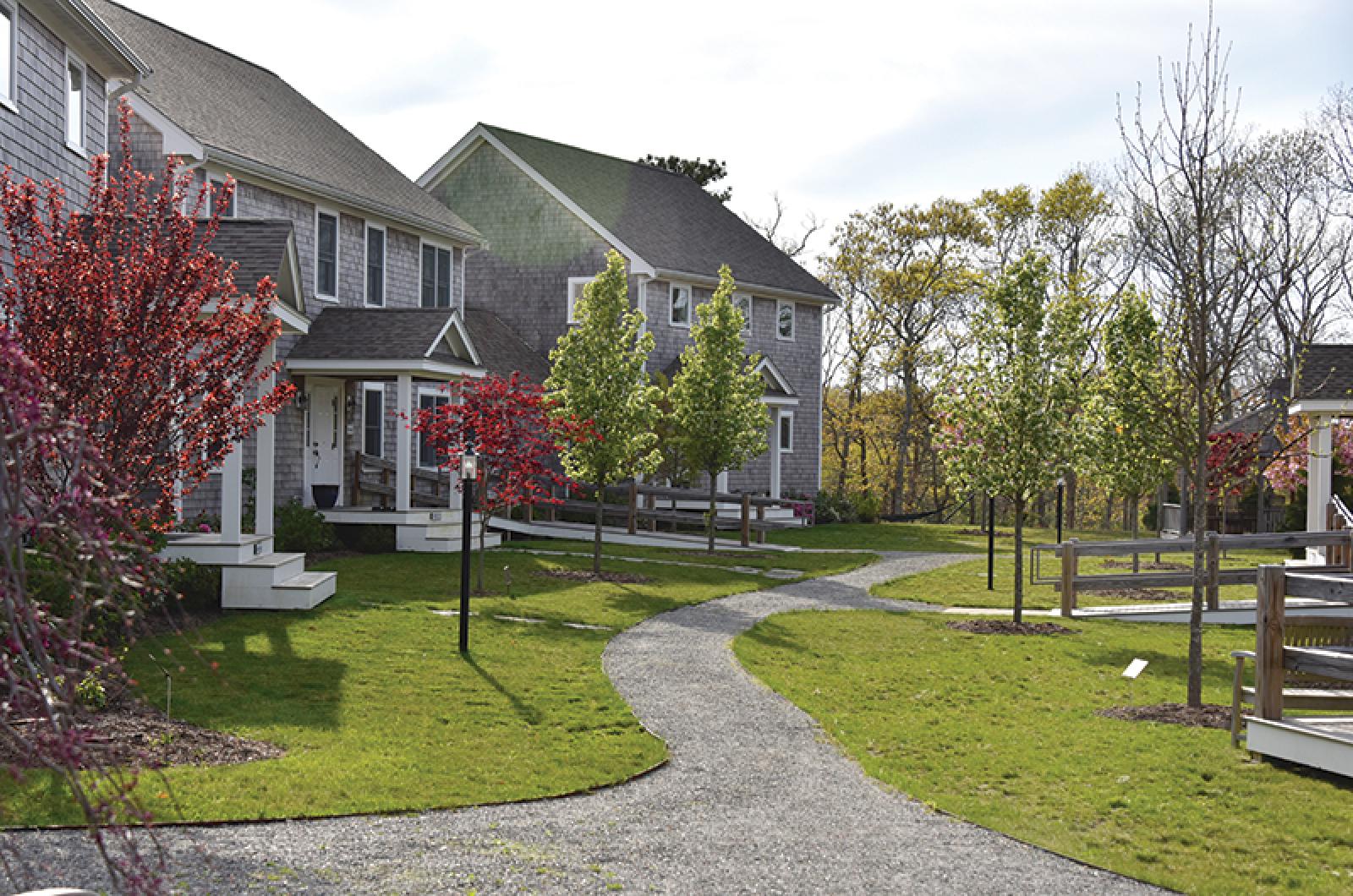



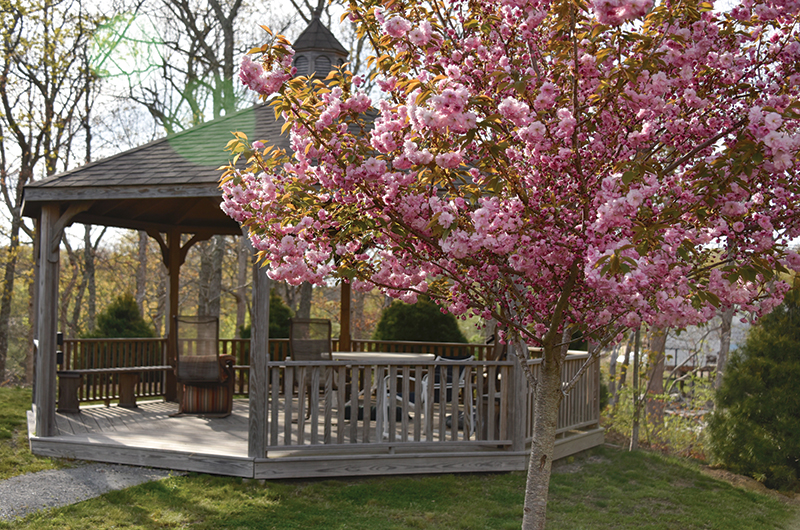
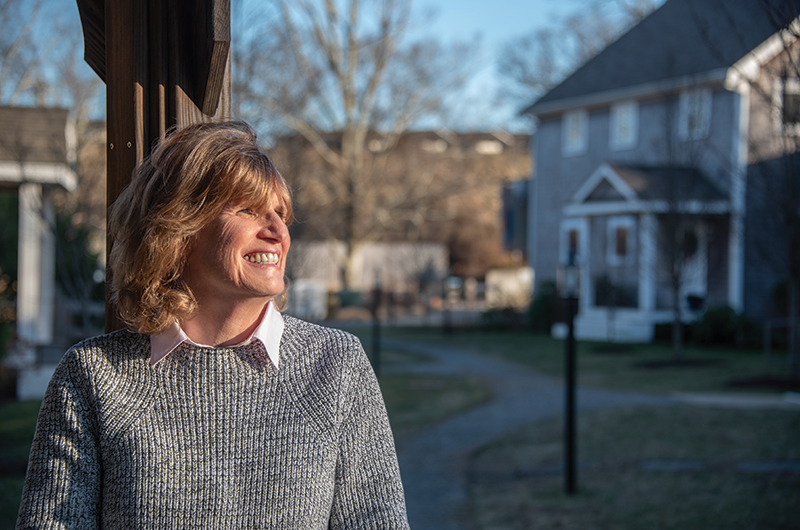
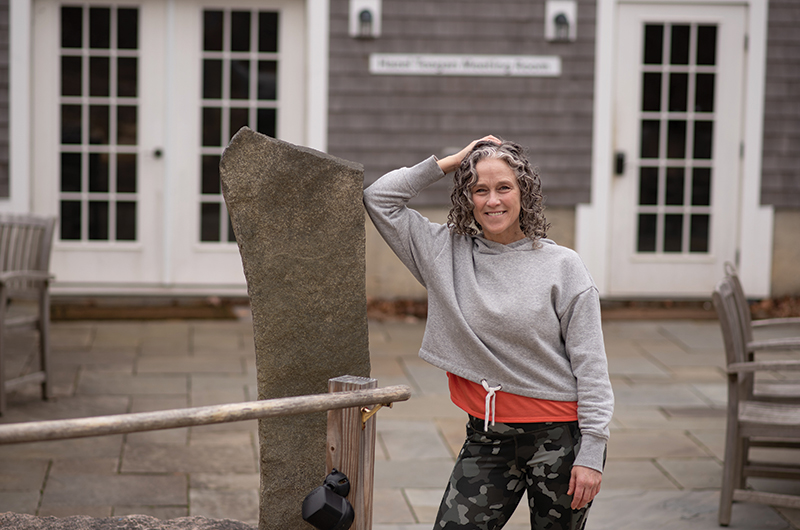
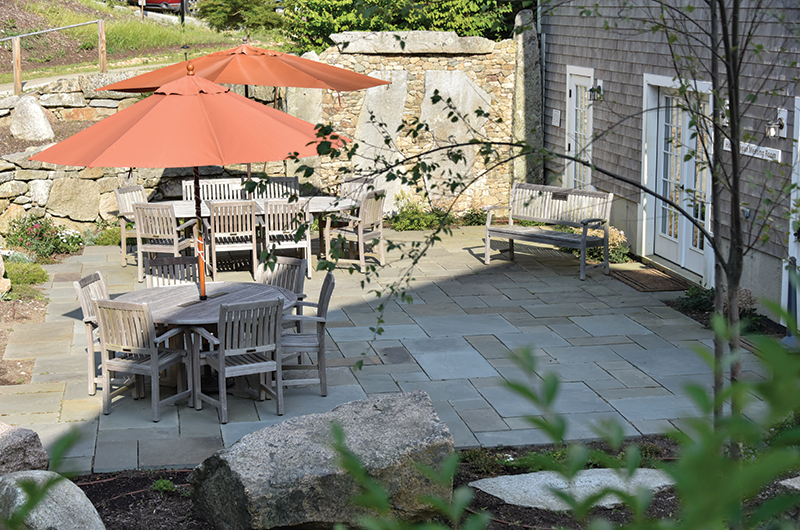
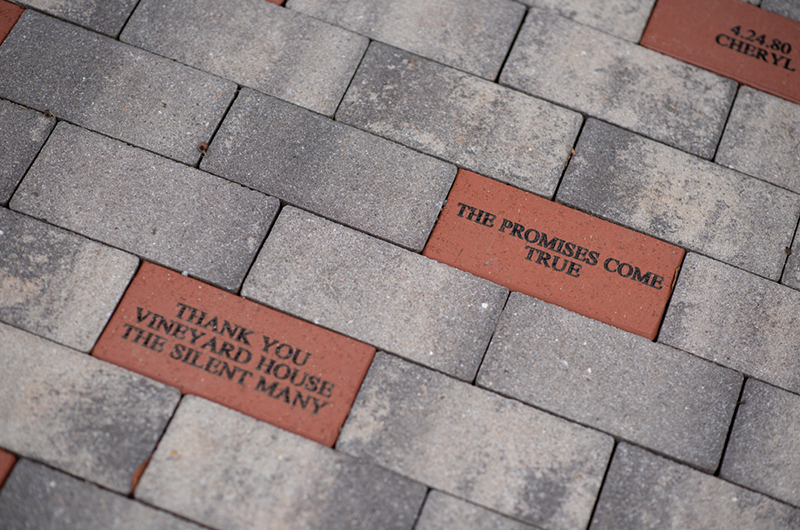
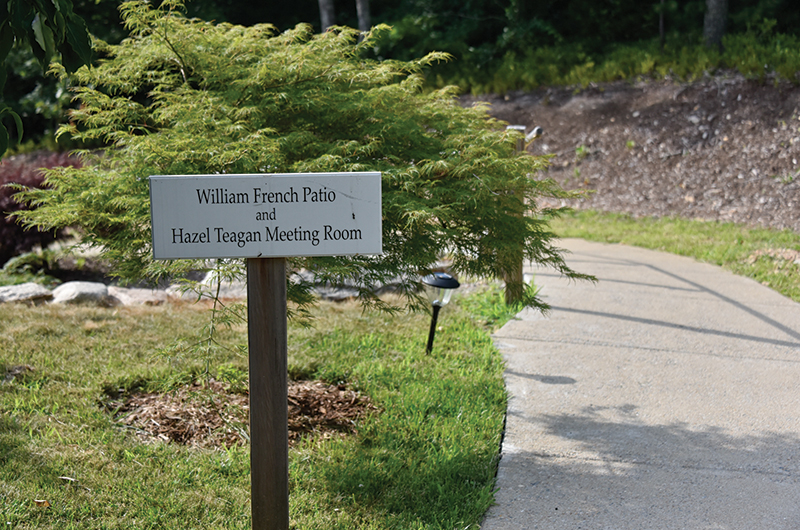



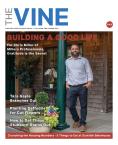


Comments